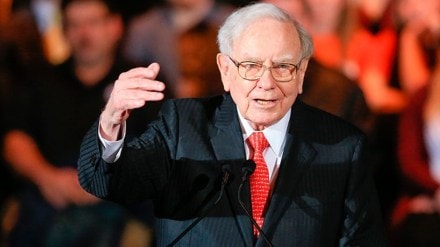UnitedHealth Group (UNH) has staged an impressive comeback on Wall Street, surging nearly 30% since Berkshire Hathaway disclosed in mid-August that it had accumulated just over 5 million shares between April and June. The endorsement from Warren Buffett’s conglomerate restored investor faith in the health insurance giant’s turnaround prospects, despite ongoing operational challenges and regulatory scrutiny.
The company has reaffirmed its 2025 earnings guidance, projecting adjusted earnings of at least $16 per share and revenue between $445.5 billion and $448 billion. UnitedHealth’s stock closed at $352.51 on Friday, a striking rise from $271.49 minutes before Berkshire’s SEC filing, and well above its early August low of $237.77.
Berkshire’s wager
What remains unclear is whether Berkshire is currently sitting on paper gains or losses. UnitedHealth shares ended the second quarter at $311.97, only 13% below present levels. If Berkshire bought near the quarter’s high of $606.36, its investment would be around 42% underwater. By contrast, a purchase closer to the low of $248.88 would leave it with gains of a similar magnitude.
Based on an average Q2 price of $379, Berkshire’s stake, valued today at about $1.8 billion, would still be 8% in the red. Given Buffett’s reputation for buying into weakness, analysts suggest his team likely acquired shares closer to the trough, though the precise entry point will not be revealed until Berkshire’s next quarterly disclosure in November.
Strong momentum, but still down year-to-date
UnitedHealth currently trades on volumes exceeding 12.8 million shares daily, with a market capitalisation of around $319 billion. The stock is well above its 50-day moving average of $292, underscoring a momentum-driven recovery. Its dividend yield stands at 2.4% with a price-to-earnings ratio of 15.27, signalling relative value compared with other large-cap healthcare peers.
Nonetheless, the shares remain down around 30% year-to-date, having swung between a high of $630.73 and a low of $234.60 in 2025. This volatility continues to temper investor enthusiasm, though recent endorsements have bolstered sentiment.
Morgan Stanley analysts, after meetings with UnitedHealth management, expressed renewed confidence in the company’s recovery trajectory. Erin Wright of the bank raised her price target from $325 to $395, citing improved conviction in the turnaround plan. On CNBC, veteran commentator Jim Cramer conceded he normally avoids stocks under regulatory scrutiny, but acknowledged “there are some people who seem to know that the worst is over.”
Such views echo Berkshire’s long-term investment approach, suggesting that even if its stake is presently under water, patience could prove rewarding.
The optimism surrounding UnitedHealth contrasts sharply with the gloom over Kraft Heinz. The packaged food giant, in which Berkshire is the largest shareholder, slipped a further 4.25% this week after announcing plans to split into two companies. Buffett, unusually vocal, told CNBC he was “disappointed” with the move. Investors now worry the billionaire might sell part of Berkshire’s more than 10% holding, which would have to be disclosed within two business days.
Buffett slips in Forbes rankings
Meanwhile, Warren Buffett dropped from fifth to ninth place in the 2025 Forbes 400 list of America’s richest people, despite maintaining an estimated net worth of $150 billion. The decline reflects his continued philanthropy: Buffett donated $6 billion in Berkshire shares this summer alone, in addition to $1.1 billion last autumn. Had he retained all the stock gifted since 2006, he would now be worth about $350 billion, ranking second only to Elon Musk.
